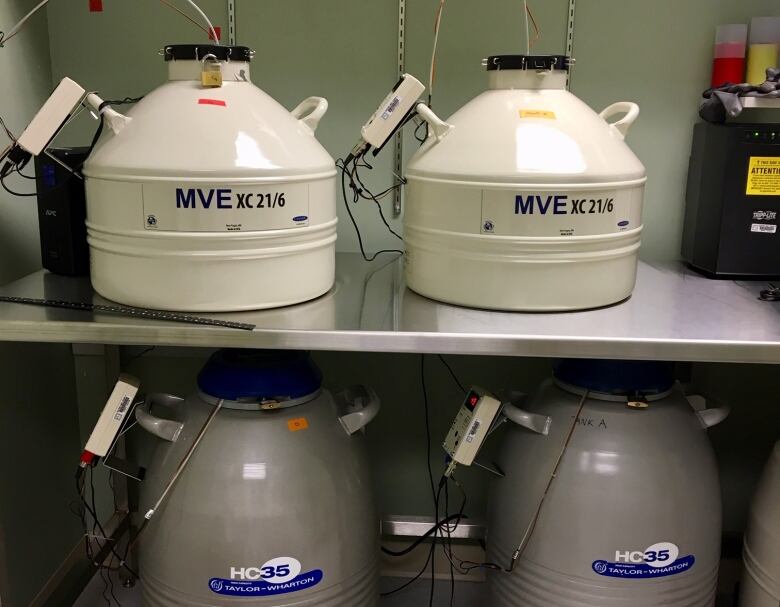Option to freeze eggs at N.S. fertility clinic now open to all — for a price
Success rate of thawing eggs has increased to more than 80 per cent, says clinic

Women who think they may want to have a baby in the future can now have their eggs stored in Nova Scotia's only fertility clinic.
And while the option comes at a steep cost, advocates say it opens doors for more families.
"We've received over 20 calls in the last year of people who were inquiring as to whether or not we provided this service," said Julie Keizer, chief operating officer of Atlantic Assisted Reproductive Therapies.
The non-profit clinic in Halifax also helps patients from Prince Edward Island and Newfoundland and Labrador — provinces that don't have fertility clinics that offer in vitro fertilization services.
For years, the clinic has allowed egg storage for cancer patients who were worried about their fertility after receiving treatment. Keizer said they recently decided to hire an additional staff member to specifically deal with egg freezing requests for social reasons.
For example, Keizer said a 30-year-old woman who has not found a partner but eventually wants children could have some of her eggs frozen in liquid nitrogen. A woman's ability to conceive a child naturally declines significantly after the age of 35.
The procedure comes with a big price tag. One cycle of egg freezing, which includes removing zero to 20 eggs, starts at $8,000.
That doesn't include the cost of medications, storage fees and costs associated with eventual defrosting, fertilizing and embryo transfer — which costs thousands more. Those fees, Keizer emphasizes, are the cost of doing the complicated procedures.
"Eggs are very delicate, even compared to embryos. So it takes even more lab time and more lab materials to freeze them," she said.
While egg freezing services are common elsewhere, Atlantic Canadians have had to travel to Moncton, N.B., or often Toronto to find clinics that offer the service.
The clinic in Halifax, which is staffed by subspecialists who also work at Dalhousie University, currently has a wait list of eight to 12 months. Keizer is confident the additional service won't extend that wait.
"I'm not imagining that there is more than a dozen people a year that we would offer this service for," she explained.

The newest option for Atlantic Canadian women to freeze their eggs is welcome news for Fertility Matters Canada, an organization that provides support to families trying to conceive.
"I think it gives women so many more options and it's a very positive move," said the organization's president, Sara Cohen, who is also a fertility law lawyer.
"This technology is a blessing for women, but it's really important that they understand that it's not a guarantee."
Keizer said in recent years, the success rate of thawing eggs has increased to about 80 per cent. But there's no guarantee it will result in a viable pregnancy.
She goes back to her example of a 30-year-old woman. If she freezes 10 to 14 eggs, that will lead to a live birth just over 40 per cent of the time.
Cohen said it's important for all women who are interested in going down this route to have good counselling so they know what to expect.
Fertility treatments not covered by Nova Scotia
She said they also need to consider what will happen to their leftover eggs or embryos if their procedures are successful. She said they can find themselves in an unexpected dilemma.
"Are they going to destroy them? Are they going to donate them to someone else or their family? Are they going to use them for research? A lot of people just store them forever because they can't really make a decision and they don't want to destroy them."
Overall, Cohen stresses that this is great news for Atlantic families who are looking for more options to conceive.
"It's part of their identity of who they are and who they want to be in this world. So they're willing to make some major sacrifices to make this happen," she said.
"I think we have to allow women the ability to make decisions about what's right for them."
Fertility treatments are not covered in Nova Scotia, P.E.I. or N.L.
New Brunswick offers a special grant of up to $5,000 for those diagnosed with fertility issues who end up using in vitro fertilization or insemination procedures.

